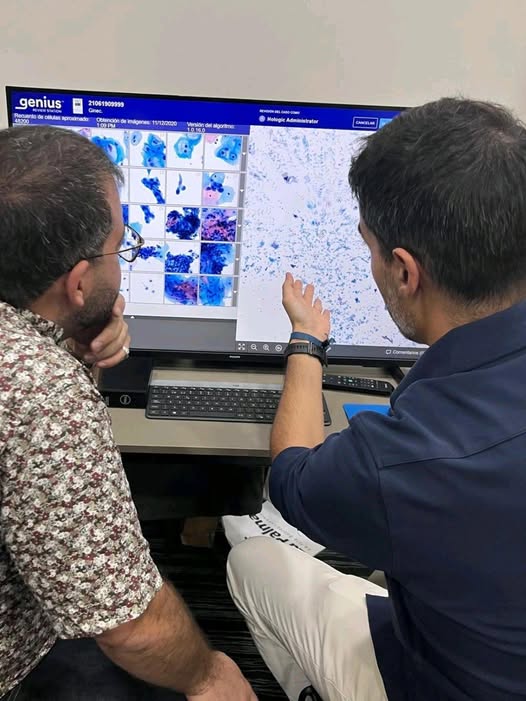ALTERNOLOGICAL EXAMINATIONS
A RAST test or radioallergosorbent test is a way of testing a person's blood to see if they have any allergies. This test checks their blood for specific lgE antibodies to find out what substances they may be allergic to.
Allergies can be a mild annoyance or a life-threatening condition. Allergy tests allow a person to find out what substances they are allergic to so that they can plan ahead and avoid those allergens.
The RAST test is an alternative to the skin prick test. The skin prick test determines how a person's skin reacts to specific allergens.
In this article, we look at which allergies a RAST test can test for, the procedure, and interpreting the results. We also compare the effectiveness of RAST tests with that of skin tests.
What is a RAST test?
A doctor will take a blood sample for a RAST test.
The RAST test is a blood test that is used to see if an individual's blood contains antibodies for a specific substance, such as peanuts or pollen. These antibodies are called immunoglobulin E, or IgE antibodies.
If a person's blood contains lgE antibodies that are specific to a certain substance, it means they are allergic to that substance. These antibodies cause the rashes, itching, sneezing, and other symptoms that a person experiences when they come into contact with an allergen.
The name RAST was originally a brand name, but experts say it is now commonly and incorrectly used to describe any lab test for allergens.
According to the Guidelines for the Diagnosis and Management of Food Allergy in the United States, the original RAST test method is now outdated. Instead of RAST tests, a doctor is more likely to order a different blood test called ELISA, which stands for enzyme-linked immunosorbent assay.
RAST test vs. skin test
Different kinds of allergy tests are available, but the most commonly used is a skin or pinprick test.
In a skin test, small amounts of different allergens are placed on an individual's skin, usually with a pinprick. People who are allergic to these substances will develop itchy hives at these sites, while others without allergies will not.
The differences between the skin test and the RAST or ELISA blood tests are as follows:
- Speed of the procedure. Skin tests are faster than blood tests. A skin test can take place in the doctor's office, but in a RAST or ELISA test, the doctor must send a blood sample to a laboratory for testing.
- Speed of results. Reactions to a skin test typically develop within 15 minutes, whereas it can take between a few days and 2 weeks to get the results of a RAST test.
- Accuracy. Skin tests may be more sensitive than blood tests, though both methods are considered accurate for diagnosing allergies. It may be more difficult to interpret accurately skin test results on people with darker skin, and skin tests may be affected by medications while blood tests are not.
- Safety. Although it is rare, a person can develop a serious reaction to an allergen used in a skin test. There is no risk of this with a blood test, such as RAST or ELISA.
- Cost. A skin test costs less than a RAST or ELISA test to process, which may be a consideration for some people.
In some cases, a person's doctor may recommend a blood test instead of a skin test. These cases can include:
- testing infants or young children, as blood tests require only one needle prick while skin tests require more
- avoiding the risk of a strong allergic reaction to a powerful allergen
- allowing individuals to stay on medication that could interfere with a skin test
- minimizing the risk of making an existing skin condition, such as psoriasis or eczema, worse
What can RAST test for?
RAST and ELISA can test for pet allergies and food allergies.
Blood tests like RAST and ELISA can test for a range of allergies, including food allergies, drug allergies, seasonal allergies, and pet allergies.
Along with diagnosing current allergies, blood tests can be used as part of the testing and treatment process that doctors use to test the progress of allergies in young children.
The presence and changes of lgE antibodies in the blood help a doctor to determine the progression of allergies, what allergy professionals call the 'allergic march,' that starts in infancy and progresses through childhood.
Doctors tended to avoid skin tests for infants, however. Researchers suggest that using blood testing procedures to diagnose allergies early in a person's life can provide the following benefits:
- the ability to start allergy intervention treatment earlier
- avoidance of dangerous reactions to food allergens in infants
- the potential to prevent the development of asthma
- a reduction in outbreaks of eczema
RAST test procedure
The RAST test procedure is fairly straightforward and does not require any preparation.
After a person speaks to their doctor, the doctor will take a blood sample, usually from the individual's arm.
This blood is then sent to a laboratory, where it is subjected to a battery of tests that look for antibodies that have developed in response to specific allergens.

